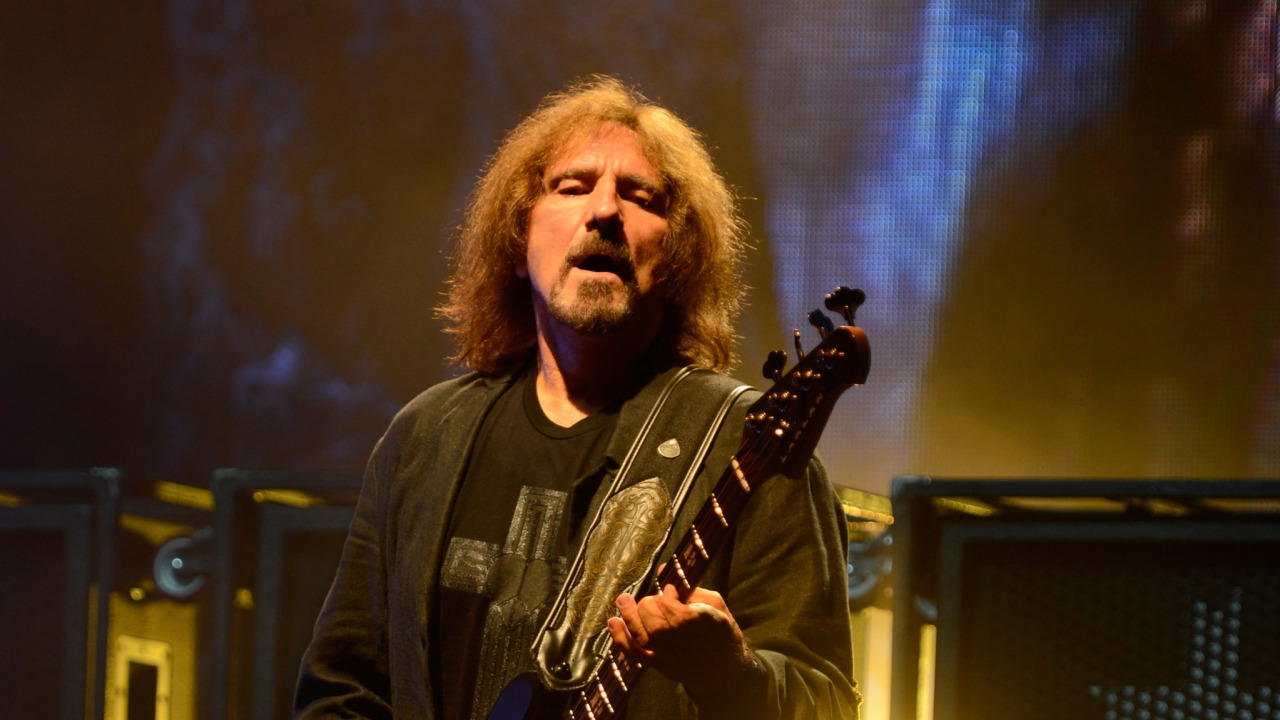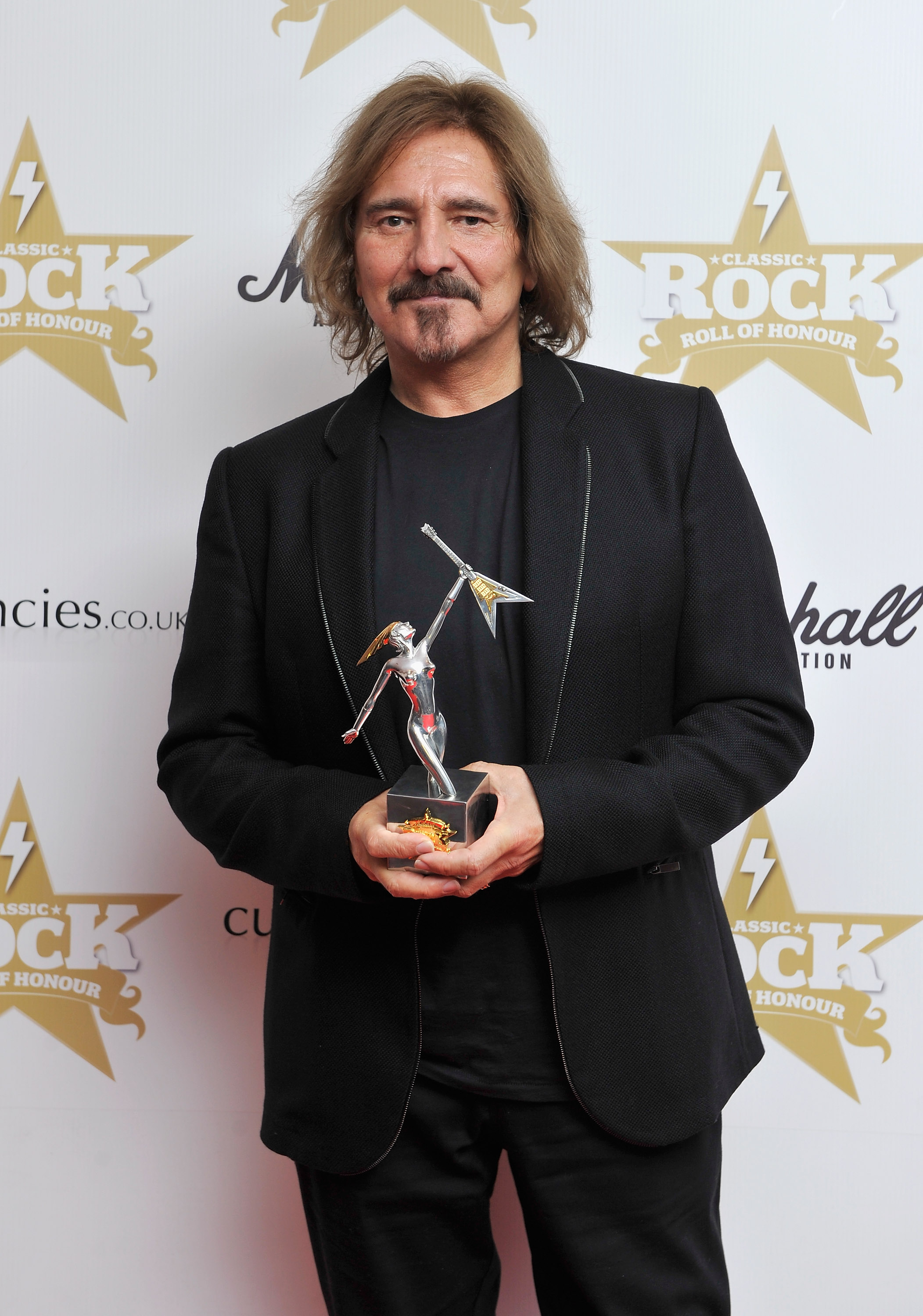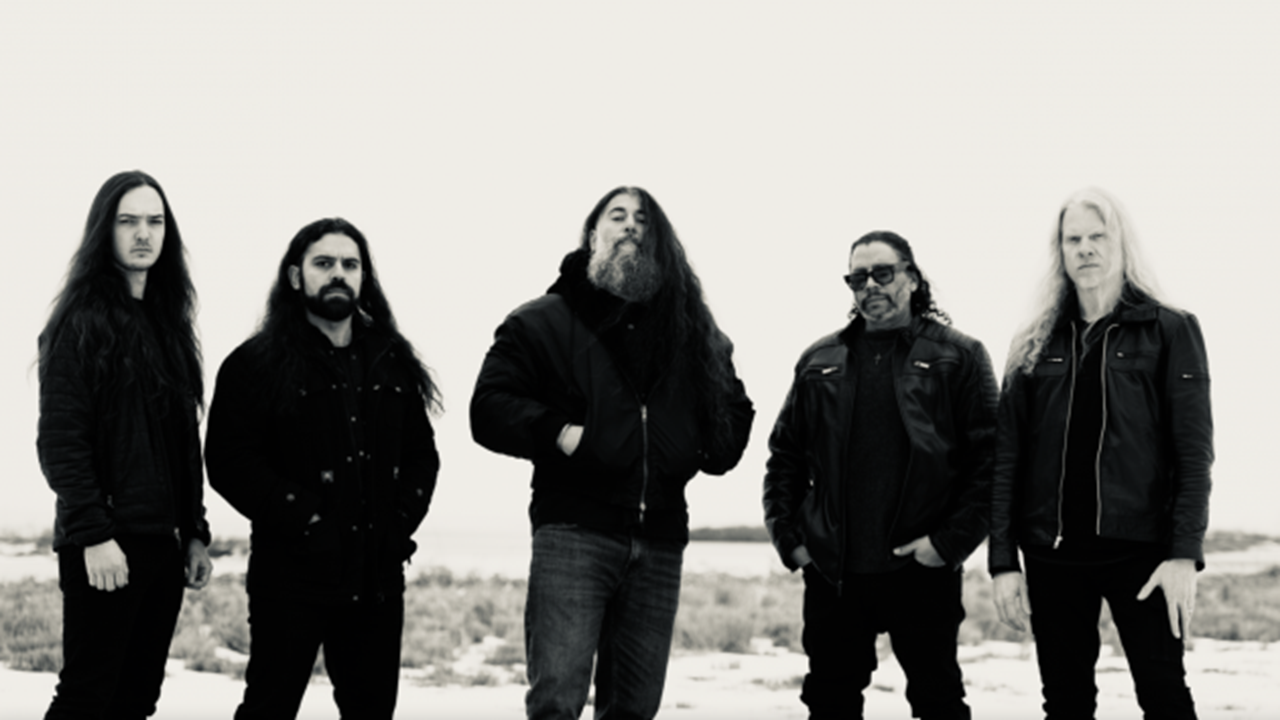Q&A: Geezer Butler
In this Classic Rock feature from 2010, the celebrated bassist talks about Black Sabbath, solo albums and his anger at war

Select the newsletters you’d like to receive. Then, add your email to sign up.
You are now subscribed
Your newsletter sign-up was successful
Want to add more newsletters?

Every Friday
Louder
Louder’s weekly newsletter is jam-packed with the team’s personal highlights from the last seven days, including features, breaking news, reviews and tons of juicy exclusives from the world of alternative music.

Every Friday
Classic Rock
The Classic Rock newsletter is an essential read for the discerning rock fan. Every week we bring you the news, reviews and the very best features and interviews from our extensive archive. Written by rock fans for rock fans.

Every Friday
Metal Hammer
For the last four decades Metal Hammer has been the world’s greatest metal magazine. Created by metalheads for metalheads, ‘Hammer takes you behind the scenes, closer to the action, and nearer to the bands that you love the most.

Every Friday
Prog
The Prog newsletter brings you the very best of Prog Magazine and our website, every Friday. We'll deliver you the very latest news from the Prog universe, informative features and archive material from Prog’s impressive vault.
Bass player Terry ‘Geezer’ Butler remains the unsung hero of Black Sabbath. In the midlands metallers’ 70s heyday, fans’ attention focused on Tony Iommi’s sluggish-but-thuggish guitar riffs, and Ozzy Osbourne’s agonised satanic bleatings. Despite his rhythmic ability to create Sabbath in Sensurround, no one really noticed Geezer, who lurked by the backline, shimmying and grooving on his dinky platform boots.
_Ohmwork _ is very angry and crunching. It’s a record that owes more to modern metal intensity than traditional hard rock.
We [Geezer plus singer Clark Brown, guitarist Pedro House and drummer Chad Smith] recorded it in just 10 days. I wanted to capture the rawness of what we were doing. We just went in and out, and finished it with the minimum of messing around.
How does Ohmwork stack up alongside your previous two albums, 1995’s Plastic Planet (with Fear Factory’s Burton C Bell on vocals) and 1997’s Black Science?
It’s certainly a lot better than Black Science - I overreached myself on that; it was a bit too experimental. It’s more or less a follow-up to the first, Plastic Planet. It’s got that same kind of pissed-off feeling.

Is it true the album’s title came about because the songs were written in your home studio, and it was like ‘homework’.
Yeah, but when you say it with a Brummie accent it sounds like ’omework. So I took that one step further by calling it Ohmwork, because an Ohm is a unit of electrical resistance – and you can’t play music like mine in an ‘unplugged’ style! We’ve also got tracks on the album with crazy titles like Pseudocide and Dogs Of Whore.
The latest news, features and interviews direct to your inbox, from the global home of alternative music.
We must talk about oral sex.
You mean Aural Sects. That track is about being in a band, and likening a band to a sect. And because we deal in people listening to us, it becomes aural – so that was another play on words.
Dogs Of Whore follows in the apocalyptic mood of Sabbath’s classic War Pigs.
The war in Iraq reminded me so much of the Vietnam war, which is where War Pigs and Hand Of Doom, and all that kind of stuff came from. That sort of got me rolling, and it gave me the direction in which to take the album. I’m so angry that the war in Iraq happened; why they couldn’t solve it diplomatically I’ll never know. So, 35 years on, and I’m still venting my spleen.
How influenced have you been by the young bands on the Ozzfest bill?
Absolutely not at all. A lot of it I don’t relate to. Usually I don’t get there until the main support band is going on, so I don’t really get to hear the other groups. I could probably tell you every Judas Priest song by now though, after the last Ozzfest [2004, where Priest were second on the bill to Sabbath]. I just heard Priest’s new single, Revolution, on the radio. I haven’t heard the album yet [this was Angel Of Retribution].
They’ve done this 15-minute track about the Loch Ness monster.
Ah.
There’s a famous quote from Ozzy about you: “Geezer,” he said, “has got a great brain.” What did he mean by that?
It’s like, compared to what? It’s probably because I could read and write. Sabbath weren’t exactly the most educated of bands. I think it was only me who went to school. I don’t know… maybe it was because I could write lyrics. Ozzy was probably stoned anyway, at the time when he said it.
Ozzy was upset when Classic Rock reported that fans were campaigning against him because of his apparent reluctance to commit to a new Sabbath album. In fact, Ozzy told us he’d very much like to do another BS record…
It’s probably me that’s against it more than anybody, because I’ve got totally different musical tastes to the rest of them. I’m much more comfortable writing on my own, rather than with other people. It’d have to be the correct situation, or I’m not interested.
Did you always have musical differences?
No, it’s more and more now.
What’s caused that divergence?
It’s since I’ve started writing my own stuff. It’s really hard to sit down with a bass guitar and not contribute to the writing part of an album, except lyrically. I don’t like just doing lyrics any more; I like to do songs from scratch. I’m not really given the chance in Sabbath to do my stuff. It’s a shame, really.
So you would prefer Sabbath to be just a touring entity doing the greatest hits?
I’ve said to Tony and Ozzy: “You two go and write some new songs and I’ll gladly play bass on them in the studio, but I don’t really want any part of the writing process.” So that would definitely work. But it’s down to timing and the fact that we all live hundreds of miles away from each other. Plus, I like to do things fast and everyone else… works really slowly. The first Sabbath album was finished in a couple of days, and Paranoid was done in a week. I always loved the way we went straight in, put the songs down live in the studio, and came up with whatever lyrics we were thinking about at the time… it got done quickly and easily. Now, it’s just such a big process. These days, when we get together in Sabbath, it just goes on forever. I haven’t got the patience.
Why has it got so complicated?
Because a lot of it’s trying to be forced, that’s what I’m saying. If that spark comes, it’s great – but we did try to do an album about three years ago, and after six weeks we’d only come up with two or three decent songs. Then Bill [Ward, drums] got sick, and I noticed that what Ozzy and Tony liked, I wasn’t really into. I’d love to do a new Sabbath album, I’d like to get that spirit back, but as I say, the best way would be for Tony and Ozzy to sit down and write the whole thing.
Are you going to tour Ohmwork?
I’d like to, yeah, but you need support from the record label, because it costs a fortune to go out on the road these days. Then the 2005 Ozzfest thing came up, so that put everything back. But Tony has a new album coming out soon, and we’re talking about how maybe his band and my band can go out on the same bill together. We’re both on the same label [Sanctuary] so it should be easy enough to get them to lend us some support. That would be a great tour, that.
This was published in Classic Rock issue 142
Geoff Barton is a British journalist who founded the heavy metal magazine Kerrang! and was an editor of Sounds music magazine. He specialised in covering rock music and helped popularise the new wave of British heavy metal (NWOBHM) after using the term for the first time (after editor Alan Lewis coined it) in the May 1979 issue of Sounds.

